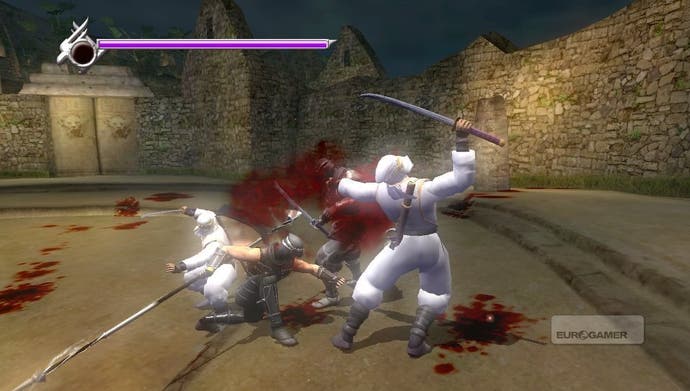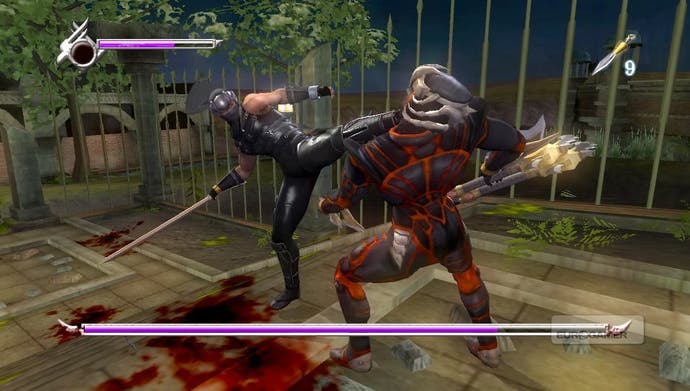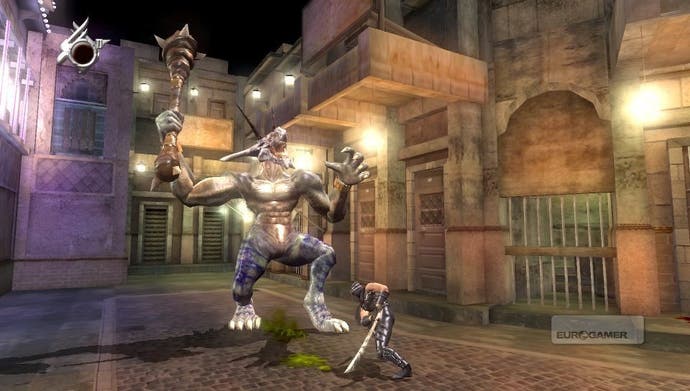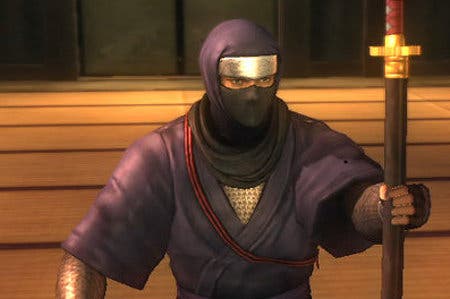Ninja Gaiden Sigma Plus Review
Throwing stars in their eyes.
Ever since handheld gaming achieved a level of processing power that could handle 3D visuals, it's become an unwritten rule that at least one launch title must be a port or remake of a popular console game - just to prove that the new portable can live up to all the cosmetic hype. Super Mario 64 DS, MediEvil: Resurrection on PSP, Super Street Fighter IV: 3D Edition on 3DS all followed this trend.
PlayStation Vita continues it with the likes of Ultimate Marvel vs. Capcom 3, but out of all the expanded game titles and familiar boxart, Ninja Gaiden Sigma Plus stands out as perhaps the most recognisable; it's an enhanced version of a PlayStation 3 remake which itself is based on an Xbox classic from 2004. Despite being older than the PSP, does this shinobi adventure still have what it takes to impress?
The answer is a resounding yes for anyone who hasn't played Ninja Gaiden Black, Ninja Gaiden Sigma or the original - but for those who have, Sigma Plus doesn't add a whole lot that's new.

The story stays true to the original and begins as Ryu Hayabusa - also of Dead or Alive fame - infiltrates his uncle's fortress before testing his ninja skills in a sparring match between katana and nunchaku. This was and remains a memorable boss fight that introduces the game's harsh but fair combat system. Get hit, and you're going to lose a large chunk of health, but by observing your opponent's movements and learning when to use the Reverse Wind technique to evade and counter-attack, you can inflict a measure of damage that's equally boss.
After matching his uncle blow for blow, Ryu learns that his home turf has been raided by another clan, and so to make sure that nothing of value has been stolen - including the apocalyptically powerful Dark Dragon Blade - Ryu begins a hasty run back home. What follows is a stylistically diverse hack-and-slash drama that features militarised nations with zeppelins and attack helicopters; large cathedrals atop Egyptian catacombs; demonic fiends that range from tentacle monsters to towering dragons; and Rachel - a war-hammer-swinging huntress whose unfathomably large breasts are marginally obscured by her S&M ensemble.
As forgivably absurd as Ninja Gaiden is, the visual excess fits comfortably with a highly polished fighting system that, unlike the more cancel-centric Devil May Cry, forces you to complete each action - whether offensive or defensive - before performing the next. This means you can't hammer out a long combo and expect to hit the eject button just before receiving a windmill punch to the face, because if Ryu's arms are still flailing, he's going to lose some dragon teeth. Far from limiting your options, the tight focus complements the flexible toolset.

Your starting weapon, the trusty Dragon Sword, is similar to the Halo 1 pistol in that it'll get you from start to finish with a potent combination of speed, precision and one-on-one takedown power. But for those who firmly believe that something other than the pen is mightier, Sigma Plus features the full range of Ninja Gaiden weaponry, including the Lunar bō-staff that appeared in Black. While the armoury retains its edgy reputation, it's a shame that Team Ninja didn't include on-the-fly weapon switching for expanded combo creativity, or the newer weapons from Ninja Gaiden 2. What it did add, however, was a new difficulty setting.
When ex-Team Ninja head Tomonobu Itagki released the updated Ninja Gaiden Black in 2005, he answered critics' claims that Ninja Gaiden was too hard by offering "Ninja Dog" mode. This became available after dying three times in the opening chapter, and would ridicule the player with ribbon accessories and a condescending attitude from fellow ninja Ayane. So maybe it's a sign of the changing times that Hero mode, the new easy setting, is available from the offset and tames the difficulty down with both unlimited Ninpo Magic and an automatic evasion system whenever you near death. You don't even have to abandon the way of the ninja.
Vita's most intriguing contribution to the Gaiden game plan is the subtle implementation of touch and motion controls. For Ryu's bow, this means tilting the console to look around in first-person while tapping on-screen enemies, and although pinpoint accuracy is tricky at long range when your target is only a few pixels wide, the system is pleasantly responsive on the whole. This is also true of the revamped magic charging system that replaces Sixaxis-shaking with rear touch mini-games that have you dragging ninja seals into slots and tapping in rapid succession.

Aside from this more hands-on approach to ninjutsu, the only other new content that Sigma Plus offers over its PlayStation 3 predecessor is an expanded Mission mode called Ninja Trials that increases the number of survival challenges from 56 to 76. All the old gauntlets like the tricky Path of the Master Ninja and the punishing Eternal Legend return, in addition to new missions like the less sadistic Ninja Tutorial and an Unrivalled Meeting that tasks you with swatting 120 fiendish flies in less than four minutes. That's a rate of one swat every two seconds!
This all adds up to an experience that, aside from a few extra bells and whistles, is more or less identical to the original Sigma. But when Ninja Gaiden ranks alongside Devil May Cray 3 and Bayonetta as one of the most finely crafted hack-and-slashers ever made, it's hard to feel too disappointed when all 19 chapters have been lovingly recreated on the small screen.
And while we're curious as to why Team Ninja chose to port Sigma rather than the more recent Sigma 2, after taking another look at the Vita's impressive launch line-up, it's easy to shortlist Ninja Gaiden Sigma Plus as one of the most compelling purchases on the fledgling system - if you haven't had to contend with the wandering hands of Spectral Doku before. But even if you have gone the full distance with Ryu Hayabusa, this is one shinobi saga that's worth reliving.

